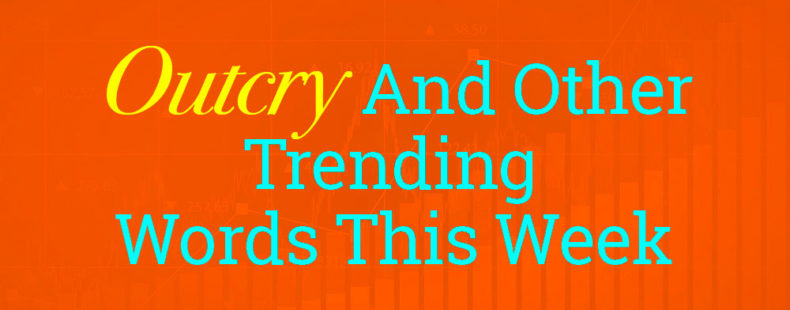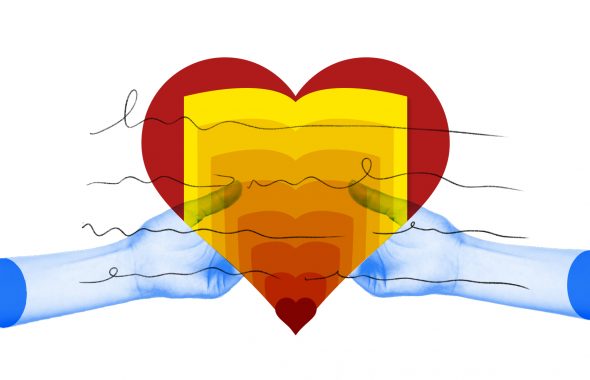![]()
Inept was up 186% in searches this week . . . and this time it’s about somebody else’s dysfunctional government and leadership team. The Times helped us explain this one:
“Malcolm Turnbull, the prime minister, and his deputy, Barnaby Joyce, traded extraordinary public barbs yesterday over an adulterous affair that has gripped the nation and fractured the government. Mr Turnbull said his deputy had ‘appalled everyone’ by conducting an affair with his former press officer, who is now pregnant. He said that Mr Joyce had caused ‘a world of woe’ for his wife, Natalie, and four daughters and needed to ‘consider his position’. Mr Joyce in turn accused Mr Turnbull of being ‘inept’ and of attempting to undermine him.”
That’s some US-level political drama, right there.
Up 185% in searches, anti– seems to be a part of every news story’s headline not only this week, but this year. Honestly . . . isn’t it accurate to say that people are much more anti- “things” than supportive? It’s so prevalent in mainstream culture, that even Rihanna named her newest album ANTI—just saying.
Whether you’re reading about the newest anti-Trump, anti-liberalism, anti-Obama, anti-semitic, anti-gun, anti-poor, anti-revolution, anti-CNN, anti-gay stories, keep in mind that being anti- isn’t going to change anything. It’s positive action that may inspire progress.
Everyone is fighting back this week, and it’s pretty inspiring, even if you don’t believe in some of the fights people are pursuing. Outcry was new to our trending list, and here’s why:
- The school shooting in Parkland, Florida has led to outcries from the high-school students who survived the tragedy as well as teachers, students, and sympathizers from around the country. They are calling on adults, politicians, the President to take action and legitimize gun control. He’s said he’ll reinstitute background checks and has directed the DOJ to ban bump stocks . . . but it’s doubtful that will be enough to warrant an end to these deadly tragedies.
- But, it’s not only the US that has seen public outcry this week. Iceland planned to outlaw circumcision and heard a worldwide religious outcry in return. The bill was introduced this month by Iceland Progressive Party MP Silja Dögg Gunnarsdóttir, who says the issue is about ‘children’s rights, not about freedom of belief.'” (theweek.co)
- Bloomberg reported that France raised an outcry this week due to a tougher immigration bill that was proposed by Macron: “President Emmanuel Macron is putting the unity of his parliamentary majority to a test with legislation that will tighten controls over immigration to France, speed up deportations and tighten qualifications for asylum, and which human rights organizations are casting as repressive.”
That’s only a sampling of the outcries seen and heard this week . . . seems like people are feeling amped and speaking up.
And, when speaking up doesn’t work . . . walking out might. Walk out was up 222% this week, and students, gun control, and mass shootings are once again behind people’s thoughts and interest for this one.
NPR sums it up best:
“In the seven days that have followed the massacre at Marjory Stoneman Douglas High School that killed 17 people, students from the Florida campus have moved from terror to grief to activism, inspiring a national youth-led protest against political inaction on gun reform. On Wednesday, the Parkland students — still mourning and fueled by anger — made their way to the state capitol in Tallahassee to confront lawmakers to demand a ban on assault weapons. Still, the Parkland victims’ protest has mobilized students all over the country who are fearful of yet another fatal school shootings. From coast to coast teens are staging walk outs of their own, urging national and local legislators to enact laws that might prevent future gun violence in schools.”
And, an even bigger high-school walk out is planned for April 20th—the anniversary of Columbine.
![]()
Panther is up 183% this week, with none other than Black Panther to thank. The new Marvel movie is breaking stereotypes and redefining how we look at black superheroes . . . and it’s amazing. Rolling Stone sums it up:
“Yet Black Panther already feels different from all of this. Coogler has set out to do something with the modern black superhero that all previous iterations have fallen short of doing: making it respectable, imaginative and powerful. The Afro-punk and Afrofuturism aesthetics, the unapologetic black swagger, the miniscule appearances from non-black characters – it’s an important resetting of a standard of what’s possible around creating a mythology for a black superhero. The trailers point to a new direction for depicting not only black superheroes, but also how we imagine our heroes. He’s not being played for laughs. He’s not a sidekick or born out of dire circumstances. His story, one of an ingrained birthright, legacy and royalty is a stark difference for how we tend to treat most black superheroes – and black superhero movies.”
With all of the action against politics this week, it’s interesting to learn that some are fighting for linguistic equality and against linguistic prejudice too. Up 440% this week in searches, linguistic has been a topic of debate.
Yale University puts it this way, “Linguistic prejudice is a form of prejudice in which people hold implicit biases about others based on the way they speak.” Yale and others are fighting to show that there is no “right way” to speak English, and that the discrimination some people face for speaking in dialects or regionalisms is an unfair bias.
Yet, it’s not just English that faces these problems. February 21st was declared International Mother Language Day, and India is using it to fight against biases and prejudices put on people who don’t speak Hindi, specifically those who want to take the railway exams and gain a profession.For more about linguistic prejudices, check out our piece on AAVE or Ebonics and how it has had to battle against the “right way” to speak English.
![]()
Weirdly, sweat was up 287% in searches this week. This is seemingly due to a wearable microfluidic sweat analytics system (that’s a mouthful). What does this mean? Well, according to Northwestern, “The device measures sweat and sweat biomarkers accurately and in real time, allowing athletes, military personnel, fitness pros and others to monitor sweat rate and electrolyte loss, so they can keep hydrated, replenish their electrolytes and stay on top of their game.”
Also, sweat seems to be helping out those with conditions like diabetes as engineers at Glasgow University developed a wearable sweat-monitoring device that could eliminate the need for pin-prick blood tests.
And, Japan had a sweat story too . . . “No-sweat exercise may prolong life for elderly men.” Hmm.
Billy Graham, an influential US evangelist died this week, prompting increases in searches for the word by 167%. According to CNBC, “He became a spiritual counselor to presidents and was the most widely heard Christian evangelist in history.”
“Graham’s message was not complex or unique, yet he preached with a conviction that won over audiences worldwide.” He wasn’t an activist, but he had expressed regret for not being more definitive in movements, like civil rights. He also actively opposed same-sex marriage. It’s said that no other evangelist is expected to have his level of influence again.
Up 818% in searches, incontrovertible made news after the National Security Advisor (McMaster) said on Saturday that it is now “incontrovertible” Russia interfered in the 2016 election. Here’s the direct quote: “As you can see with the FBI indictment, the evidence is now really incontrovertible and available in the public domain, whereas in the past it was difficult to attribute.”
Trump wasn’t a fan of this though, and he’s since fired back saying:
General McMaster forgot to say that the results of the 2016 election were not impacted or changed by the Russians and that the only Collusion was between Russia and Crooked H, the DNC and the Dems. Remember the Dirty Dossier, Uranium, Speeches, Emails and the Podesta Company!
— Donald J. Trump (@realDonaldTrump) February 18, 2018
Whose team is he on if not his own staff . . .














